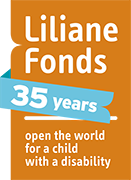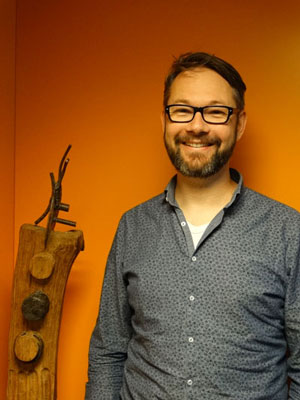New research project: Breaking down barriers to exclusion. Building capacity for lobby and advocacy for children with disabilities
African Studies Centre Leiden and Liliane Foundation participate in a new research collaboration
 Despite higher levels of economic growth and wealth in several African countries, large numbers of children with disabilities remain excluded and their caretakers face severe difficulties in coping with their children’s disabilities and exclusion. Civil society organizations can and do play an important role in promoting the rights of children with disabilities through lobby and advocacy. However, the success factors of lobby and advocacy in this area are as yet poorly understood. In addition, there is much uncertainty about how international civil society organisations can best support their local partners in lobby and advocacy work. The Liliane Foundation has sought cooperation with the ASCL to build the knowledge and capacity of its partners and of itself within the field of lobby & advocacy.
Despite higher levels of economic growth and wealth in several African countries, large numbers of children with disabilities remain excluded and their caretakers face severe difficulties in coping with their children’s disabilities and exclusion. Civil society organizations can and do play an important role in promoting the rights of children with disabilities through lobby and advocacy. However, the success factors of lobby and advocacy in this area are as yet poorly understood. In addition, there is much uncertainty about how international civil society organisations can best support their local partners in lobby and advocacy work. The Liliane Foundation has sought cooperation with the ASCL to build the knowledge and capacity of its partners and of itself within the field of lobby & advocacy.
Put the results into practice
 For this project, Dr Willem Elbers has been employed as a researcher at the ASCL. He will do research into the lobby and advocacy processes of civil society organisations within the field of children with a disability. The research will focus on two African countries which still have to be selected. The main question will be: what factors enable and constrain local civil society organizations to promote the rights of children with disabilities and their caretakers through lobby & advocacy? And how can the results of the research be put into practice by both the local organisations and the Liliane Foundation?
For this project, Dr Willem Elbers has been employed as a researcher at the ASCL. He will do research into the lobby and advocacy processes of civil society organisations within the field of children with a disability. The research will focus on two African countries which still have to be selected. The main question will be: what factors enable and constrain local civil society organizations to promote the rights of children with disabilities and their caretakers through lobby & advocacy? And how can the results of the research be put into practice by both the local organisations and the Liliane Foundation?
Success factors
‘Twenty percent of the poorest people on earth have a disability’, Elbers tells. ‘Children with a disability are particularly vulnerable. We are talking about both physical and intellectual disabilities here.’ The Liliane Foundation as of yet has been involved in a range of activities related to, for example, education, medical support and inclusive livelihoods. ‘However’, Elbers continues, ‘the structural causes of these children’s marginalization are often at the political level. Many African countries have wonderful policies for disabled persons on paper, but they can or do not realize this policy into day-to-day practice. Some local civil society groups have been quite successful in promoting the rights of children with disabilities while others seem to have had little success. Why? What politics and strategies do successful organizations apply? What coalitions do they form? Do they involve the media in their work, or is silent lobby more effective? In the end, this project will build the knowledge and capacity of the Liliane Foundation and its partner organisations.’
Local academic partners
The academic goals of the four-year research cooperation between the ASCL and the Liliane Foundation are to produce and publish academic papers on lobby & advocacy in peer reviewed journals. Local African academic institutions will act as sparring partners of the Liliane Foundation’s local partners, contribute to their capacity building and play a role in the local dissemination of research findings.
Inclusive development
The ASCL appeared a logical partner for the Liliane Foundation as the research subject links to the inclusive development debate, and the ASCL runs the Secretariat for the Knowledge Platform on Inclusive Development (INCLUDE). The ASCL’s Ton Dietz will act as project coordinator while Gitty Petit will be the project administrator. The collection of data will be primarily done by still to be selected Masters students.
Socially engaged scientist
Willem Elbers, who read Development Studies at Radboud University, defended his PhD in 2012, after which he became a lecturer in Anthropology and Development Studies at the same university and coordinator of the Advanced Master in International Development (AMID). He sees himself as a ‘socially engaged scientist’ with a multidisciplinary background: anthropology, political science, public administration and organization studies. ‘This will all come in handy in this new research’.

